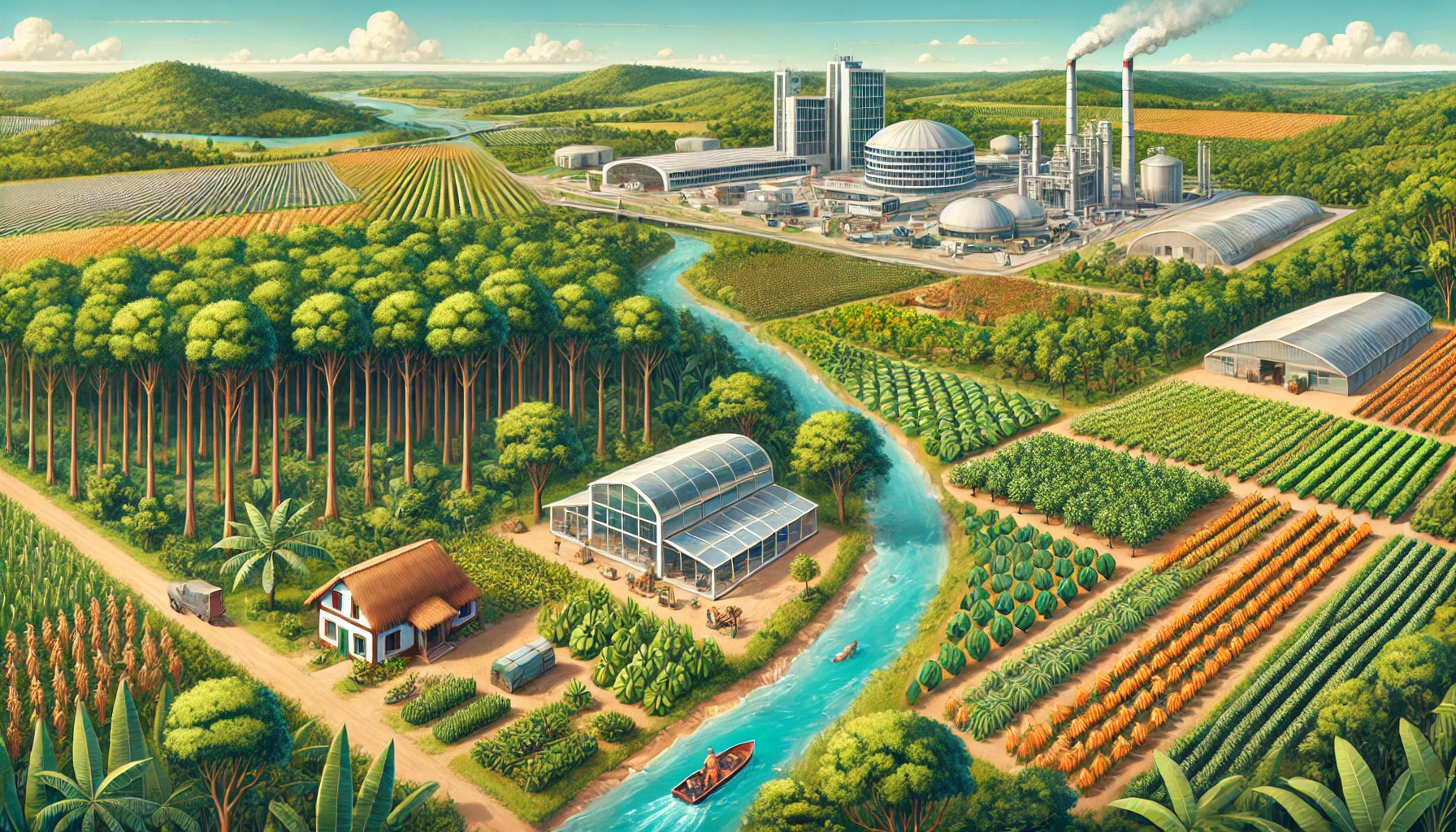Harnessing Paraguay's Bioeconomy: Pathways to Sustainable Growth and Economic Diversification
The World Bank report highlights Paraguay's significant potential to diversify its economy through an innovative bioeconomy, emphasizing the need for government support, enhanced R&D, and sustainable practices to fully capitalize on global market opportunities.

The World Bank's recent report on Paraguay’s bioeconomy offers a comprehensive analysis of the country’s potential to diversify its economy and create sustainable jobs by leveraging its rich biological resources. Paraguay's bioeconomy, which currently contributes around 23% of the nation's total value added equivalent to approximately 9.5 billion dollars in 2022 has seen success in niche markets such as organic sugar, sesame, cotton, and essential oils. These sectors, while relatively small in scale, have demonstrated the country's ability to comply with international standards and certifications, which is critical for accessing high-value global markets. However, the report highlights that further innovation and strategic expansion are necessary for Paraguay to fully capitalize on the growing global demand for sustainable goods and services.
Unlocking the Potential of Paraguay’s Bioeconomy
The report underscores the need for government intervention to support the country's small and medium-sized enterprises (SMEs), which currently face significant challenges, including limited capacity, inadequate financing, and insufficient research and development (R&D). The landlocked geography of Paraguay exacerbates these challenges by increasing shipping costs, further straining the competitiveness of its SMEs in global markets. To address these issues, the report advocates for stronger public-private collaboration, enhanced market access, and the creation of a more enabling environment for bioeconomy sectors.
Navigating Export Challenges and Diversification Needs
Comparing Paraguay to regional peers such as Colombia and Argentina, the report points out that Paraguay’s export base is highly concentrated, with a small number of products and trading partners dominating its export revenues. For instance, nine trading partners account for roughly 80% of Paraguay’s exports, while just five products generate over 70% of export revenue. This concentration makes the economy vulnerable to external shocks and highlights the urgent need for diversification. To achieve this, Paraguay must expand its innovation capabilities and explore new bioeconomy sectors such as bioplastics, biopharmaceuticals, ecotourism, and carbon finance. The report notes that while Paraguay's R&D spending is currently a mere 0.16% of GDP significantly lower than the average in Latin America and within the Mercosur bloc enhancing this investment is crucial for fostering innovation and supporting the bioeconomy. Additionally, the country's patent system, which is criticized as being slow and inefficient, requires significant improvements to facilitate the commercialization of new technologies and products.
Exploring Opportunities in Emerging Bio-Based Sectors
The report also identifies several promising opportunities within various bio-based sectors. For example, the global market for bioplastics is expected to grow between 35% and 45% by 2027, driven by commitments from large corporations to purchase sustainable materials despite the associated price premiums. Paraguay, with its abundant agricultural resources, is well-positioned to expand its bioplastics production, particularly from cassava starch. Although some pilot projects have already begun, the report notes that there is only one company currently producing bioplastics in the country, and it lacks the necessary technology to produce the polymer domestically, relying instead on imports from Europe. This situation underscores the need for increased R&D, investment in technology, and recognition of domestic feedstocks to fully exploit this opportunity.
Capitalizing on Paraguay’s Rich Biodiversity
In the pharmaceutical sector, Paraguay has the potential to leverage its biobased ethno-botanical resources and traditional medicine practices to produce high-value-added pharmaceuticals. The country is already a global leader in the production of petitgrain essence, with around 10,000 small-scale producers involved in its cultivation. Furthermore, there is significant potential in the cultivation of hemp for biopharmaceuticals, with over 2,000 hectares currently registered for this purpose. However, the pharmaceutical industry in Paraguay faces challenges related to slow patent processing, insufficient innovation, and the need for improved technology and product differentiation. Addressing these issues could enable the country to tap into the growing global demand for biopharmaceuticals, which is projected to reach 760 billion dollars by 2030.
Toward a Sustainable Bioeconomy Strategy
The report also highlights the importance of sustainable forestry in Paraguay’s bioeconomy. The country’s forests are home to a vast array of biodiversity, making them a valuable resource for both the domestic and global markets. However, the report warns that unsustainable practices, such as the over-exploitation of native forests for fuel wood and the lack of long-term financing for sustainable forestry, pose significant threats to these resources. The planned establishment of a large pulp mill in 2024, which is expected to create 4,000 direct jobs, represents a major opportunity for Paraguay to increase its export revenues from pulp wood production. However, the success of such initiatives will depend on the implementation of sustainable practices and the development of a comprehensive national strategy to manage and protect the country’s forest resources.
The World Bank’s report calls for the development of a national bioeconomy strategy in Paraguay that emphasizes coordinated efforts across government, academia, and the private sector. Such a strategy should focus on improving the business environment, enhancing R&D capabilities, and promoting sustainable practices to fully realize the potential of Paraguay's bioeconomy. By doing so, the country could not only diversify its exports and create better jobs but also support sustainable development and long-term economic resilience.
- FIRST PUBLISHED IN:
- Devdiscourse
ALSO READ
OfBusiness Launches Nexizo.AI: A New Era for SMEs
IFC and BNI Madagascar Partner to Boost Local Currency Financing for MSMEs
Diplomatic Rift Between Venezuela and Paraguay Over Opposition Support
Union Minister Stresses Growing Potential of MSMEs and Coir Sector
BRISKPE Revolutionizes Cross-Border Payments for MSMEs










